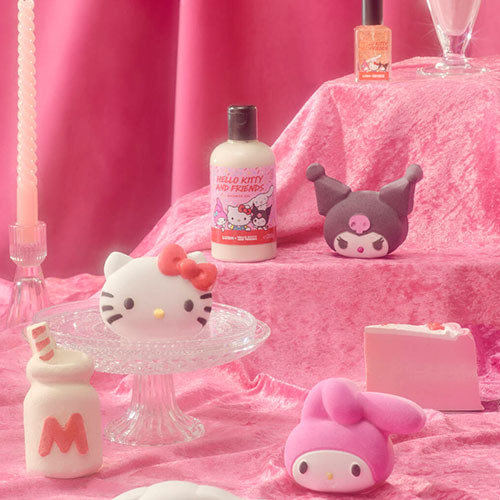Start Licensing’s Ian Downes takes a trip to Poland and finds some solid licensing activity.
The Licensing Lookout went on a bit of a journey this weekend visiting Krakow and Gdansk in Poland. While the primary purpose of the trip wasn’t business it is difficult to switch off from ‘lookout’ mode – although I didn’t take my binoculars with me…
When viewing licensing activity overseas one thing that becomes apparent is the strength in depth of certain brand owners and properties. Companies like Disney, Universal and Warner Bros have created genuinely international businesses in and through licensing with their products featuring on shelves internationally.
This is no easy task – at a practical level the property has to have global appeal: this will normally mean an investment in media, PR, trade support and staff country by country, while the property itself needs to be ready for market in different countries. This latter point is important as it may require investment and adjustment to style guides, character names, product ranges and presentation.
One of the properties that I saw a lot of in Poland was the Minions. One example was a range of Minions Kinder eggs with collectable figurines – the Minions brand name had been changed locally, but essentially the look and feel of the brand remains the same. Once a property is working country by country it makes licensing more attractive to global players such as Kinder – they can achieve economies of scale and the property fits into their business model well.
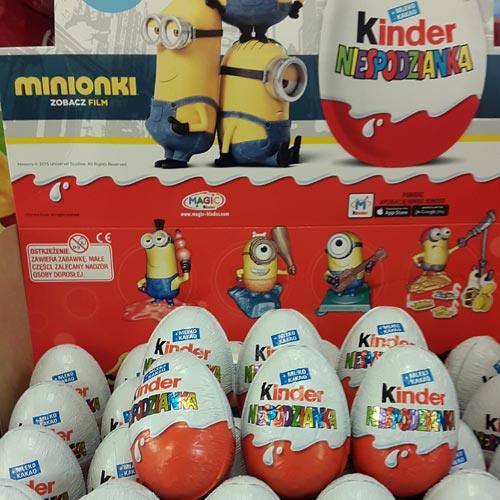
For the licensor this can make their business more efficient with fewer licensees to manage and the ability to foster long-term relationships with multi national players; this helps in growing business financially and longer term planning. It also helps with portfolio management – there is no surprise to see bigger companies in sectors like FMCG partnering with the likes of Disney who can provide them with a regular supply of good quality properties over the long-term. They can use licensing in a planned way and take out any unpredictability from the process.
It will be no surprise to learn that Disney and their properties featured heavily on shelf – countries like Poland have always been Disney-friendly, driven by a legacy of TV and films, but also the long-term success of Disney’s publishing businesses through products like comics and books. Many Disney characters like Donald Duck have a great heritage in Eastern European countries because of comic publishing. There is a great cross-generational appeal.
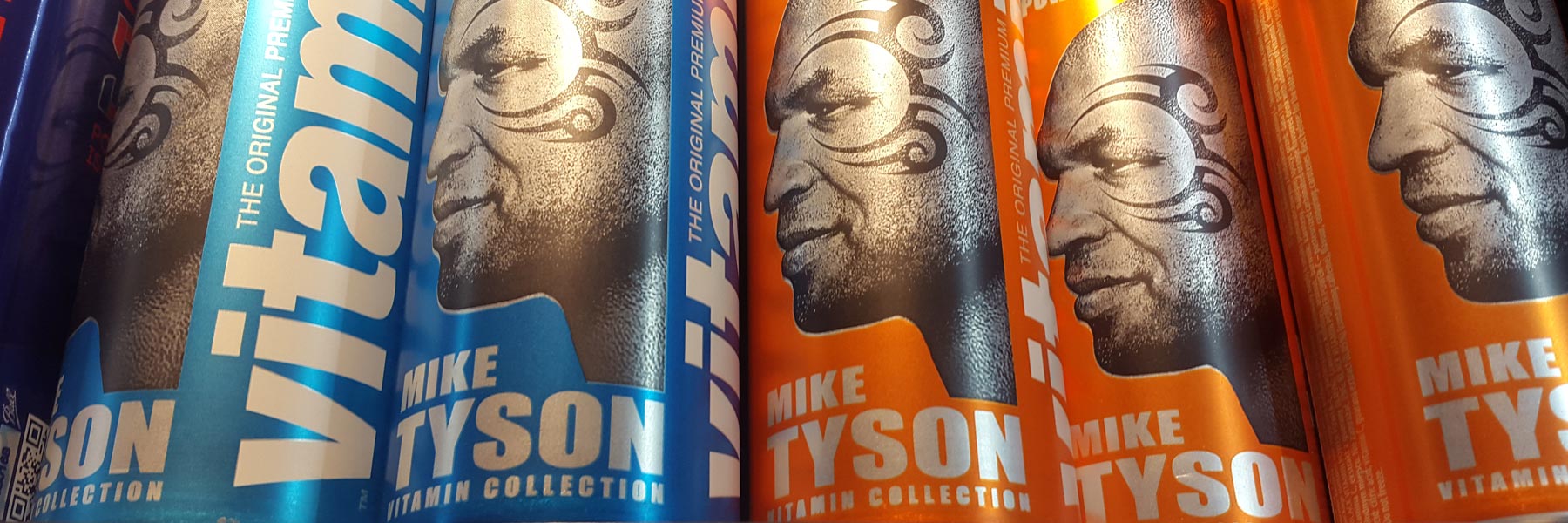
I was surprised to see controversial boxer Mike Tyson featuring in the Energy and Vitamin Drink aisle. The brand fit between the sport of boxing and energy drinks seems a sensible one, but the choice of Mike Tyson as a personality brand carries some risk. He has had a chequered personal and sporting life, but recent cameos in films like The Hangover have helped him bounce back. But nevertheless a brand owner using him to front a FMCG range carries a risk.
That said the risky side of the association may be the appeal to the drinks company as they seek to achieve cut through in a sector dominated by big brand names and to reach a younger audience.
Interestingly, Poland seems to be a popular location for MMA fighting and with this in mind Mike Tyson’s personality, history and image probably appeals. Aside from the analysis of the choice of using him I think the product presentation and packaging was good – it really stood out in the chiller cabinet well and the design style made the most of Tyson’s identity including his facial tattoo.
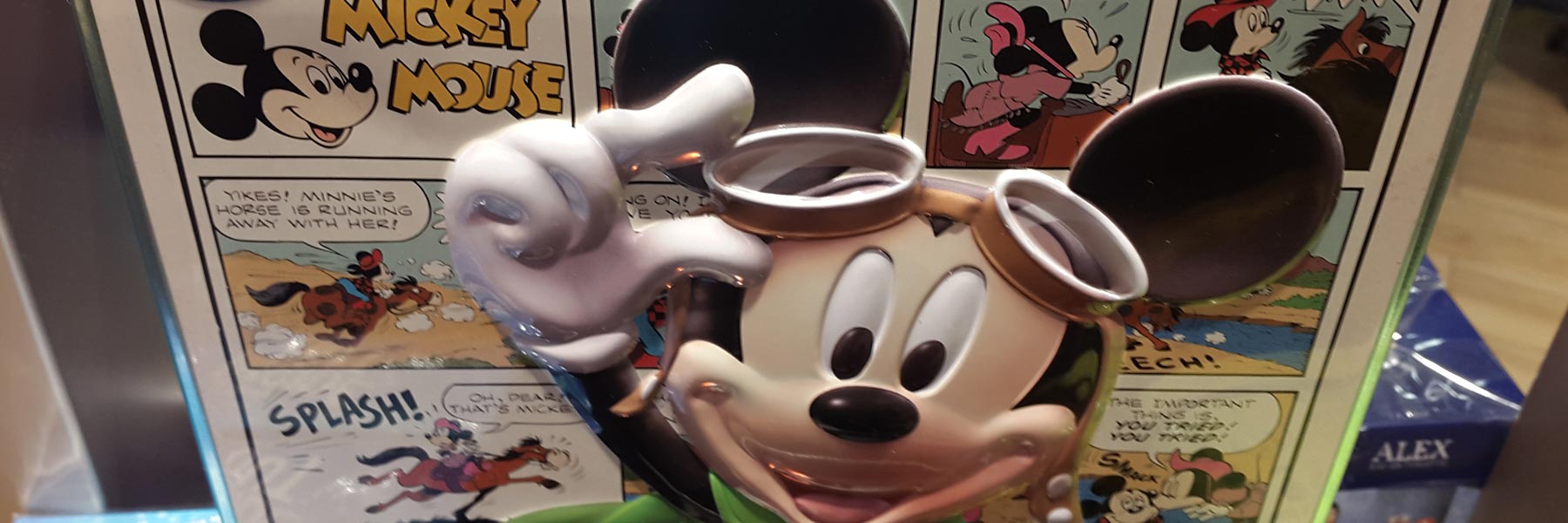
Within duty free it was interesting to see children’s characters being used quite extensively on perfumes with a Mickey Mouse gift set in a presentation tin, Minions, Inside Out and Hello Kitty all having their own perfume ranges. These characters will work in this context because of their international recognition and their gifting appeal.
I’m not sure that products like these would work so well outside of the duty free sector, but the Mickey Mouse product in particular was well presented with the gift tin featuring comic art backgrounds keeping it on trend. The use of a retro style lunch tin to carry the product was clever as well giving the product longevity and a dual use.
LEGO had a strong presence in duty free as well, with licensed ranges based on Minecraft and Star Wars featuring prominently in a dedicated space. Again confirmation of the ‘power’ of certain licensed brands on the international stage.
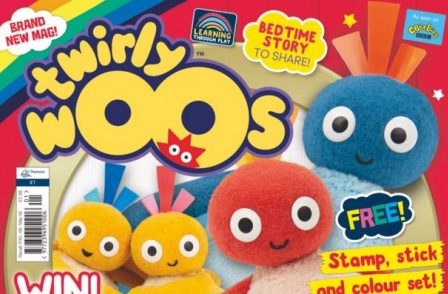
Back in the UK it was good to see another new entrant to the licensed comics market with DC Thomson launching the official Twirlywoos comic. As we work with DC Thomson on The Beano I am always interested to see what they are developing out with their own IP. They are also a company that has been relatively quiet in the licensed comics sector, but are now becoming more visible and active – which for licensors and agents must represent be good news.
The comic features a stamp set, stickers and colouring set as a covermount. As noted in previous columns it is very rare to see a children’s magazine without a covermount gift these days, but in this case it is good to see that the publisher has created custom items and also chosen items that can be used in an active way. Both of these points should resonate well with parents.
Timing with the launch of magazines associated with new series is always a challenge, but given the fact that this series is on CBeebies regularly DC Thomson probably felt it was better to launch now and grow their readership with the show. Content wise as you would expect the magazine follows the programme closely but builds on it with plenty of activity pages and content that can be ‘shared’ between adult and child including a bedtime story.
Magazines are a very tangible representation of licensing and it is always good to see a new launch that sets a high quality threshold. The Twirlywoos magazine is well put together, bright and colourful. It has been well supported at retail with strong positioning and POS/POP materials. Hopefully DC Thomson’s investment and attention to detail will be rewarded with good sales.
Licensed comics and magazines are a direct touch point with consumers for licensing, and it is a sector which is all our interests to see having more successes than failures in.
Ian Downes runs Start Licensing, an independent brand licensing agency. His Twitter handle is @startlicensing – he would welcome your suggestions for what to look out for.























